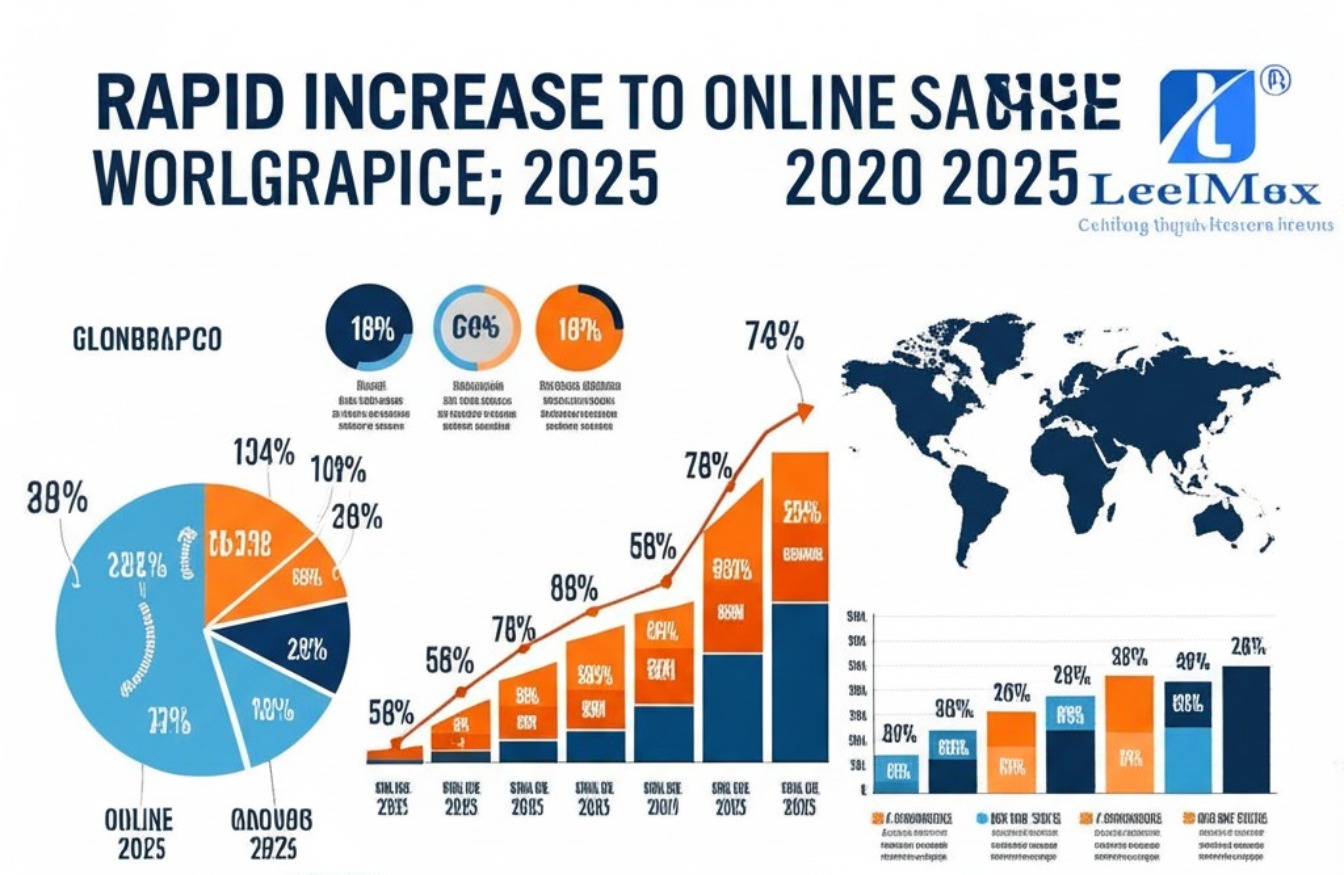Author:
Shasya Dubey
|
Category:
E-Commerce
|
Date: May 31, 2025 18:00
🚀 The Future of Shopping: Why E-Commerce Is a Must for Every Business in 2025
The Growing Importance of E-Commerce in Today’s Market
In today’s fast-evolving digital marketplace, e-commerce is not just a passing trend—it has become a vital necessity for businesses across every industry. As consumers shift their buying habits online, traditional models are being redefined by technology, convenience, and digital-first behavior. Businesses that fail to create a robust online presence risk losing their market share to more adaptive competitors. Whether you're a startup or an established enterprise, creating a digital storefront is no longer optional—it’s essential to future-proof your brand, increase your reach, and generate sustainable revenue growth.
The global e-commerce market continues to expand at an unprecedented rate. According to Statista, global e-commerce sales are expected to surpass $6.3 trillion by the end of 2025. In India, the momentum is even stronger. Thanks to rising smartphone usage, digital payment adoption, and internet accessibility, India’s e-commerce sector is on track to exceed $200 billion in value by 2026, as highlighted by IBEF. These figures clearly indicate that digital commerce is not just an opportunity—it is the future of business.

Building a User-Friendly and Functional E-Commerce Platform
Building a powerful e-commerce platform requires more than uploading a few product images. A successful online store needs to be built with a user-first approach that prioritizes functionality, speed, and convenience. Websites should load quickly, ideally under two seconds, to avoid losing impatient visitors, as recommended by Google PageSpeed. They must also be designed responsively, so customers can browse easily on any device—mobile, tablet, or desktop. Integrating secure checkout systems, such as trusted payment gateways like Razorpay or PayU, is essential for building customer confidence during transactions. Additionally, real-time inventory management and advanced customer service tools like live chat and order tracking provide smooth user experiences that encourage repeat business. Many brands also incorporate customer relationship management systems, such as Zoho CRM, to automate engagement and improve sales processes.

Choosing the Right Platform for Your Business Needs
Choosing the right platform for your e-commerce website plays a pivotal role in its success. Shopify offers a quick-to-launch solution with an extensive plugin ecosystem suitable for businesses seeking speed and simplicity. WooCommerce combines the flexibility of WordPress with e-commerce features for brands that desire deep customization. Magento is designed for larger enterprises requiring scalability and complex functionality. For companies with very specific needs, custom development using modern frameworks like Laravel, React.js, or Node.js delivers full control over design, performance, and integration capabilities. Moreover, integrating tools such as Google Analytics 4 enables businesses to track customer behavior and optimize marketing efforts effectively. Smart features like AI-driven product recommendations and automated upselling enhance customer engagement and increase average order value.

Explosive Growth in Global and Indian E-Commerce Markets
The global e-commerce market continues to expand at an unprecedented rate. According to Statista, global e-commerce sales are expected to surpass $6.3 trillion by the end of 2025. In India, the momentum is even stronger. Thanks to rising smartphone usage, digital payment adoption, and internet accessibility, India’s e-commerce sector is on track to exceed $200 billion in value by 2026, as highlighted by IBEF. These figures clearly indicate that digital commerce is not just an opportunity—it is the future of business.
Why Professional Development Matters for Your E-Commerce Success
A well-developed e-commerce website doesn’t just display products—it acts as your 24/7 salesperson, delivering seamless, secure, and conversion-driven experiences. This not only streamlines business operations but also strengthens brand credibility and customer loyalty. Regardless of whether you sell physical products, digital goods, or services, your digital storefront must perform flawlessly across devices, offer transparent communication, and provide easy access to support to build lasting trust. Investing in professional e-commerce development helps businesses stay competitive, scale efficiently, and adapt to evolving consumer demands.
Taking the First Step Toward a Digital Future
As digital commerce becomes the norm, the time to build or upgrade your online store is now. Establishing a robust, scalable, and well-designed e-commerce website positions your business for sustainable growth and long-term success. By selecting the appropriate platform and combining it with expert design and development, you ensure your brand can effectively reach wider audiences and capitalize on the booming online market. Taking the first step toward a digital future means partnering with knowledgeable professionals who can transform your vision into a powerful e-commerce experience. To begin this journey, visit the Contact Page and start building your custom online storefront today.












Comments
No comments yet. Be the first to comment!